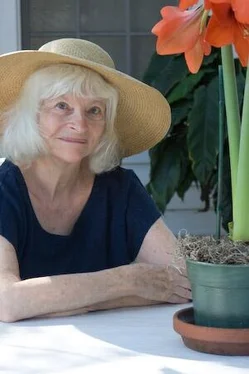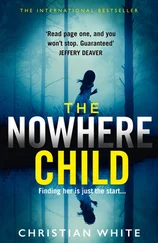“Sit down, Paul. What’s on your mind?”
Paul did not sit down; he remained standing, looking at some fragments of blue ocean between the dusty palms. His manuscript was on his mind, he said. What was the story? He was beginning to wonder, he said in a joking tone, if N.R.D.C. really wanted its history written. What was going on in the administrative offices, anyhow?
“Who knows?” I don’t know, so don’t ask me, Leon’s shrug and tired, sympathetic smile seemed to imply. But Paul did not believe him: office gossip, as well as the whole appearance and manner of Howard Leon, suggested that he knew everything there was to know, and then some.
“They’re still looking it over, I suppose,” Paul said, trying to speak in low, unexcited tones like those of the Department Head.
“Well, no,” Leon said; swiveling himself slightly from side to side in his chair. “I don’t believe it’s actually under consideration now. The policy now seems to be to shelve this project temporarily.”
“Oh. Temporarily? How temporarily? You mean maybe for ever?”
“Who knows?” The shrug.
“That’s great,” Paul said in a kind of joking tone, waving his arm. He had noticed before that in contrast to Leon, who hardly moved during these conversations, his own gestures tended to become large, vague, and violent. “I wrote it, and now they don’t want it. ... What’d they hire me for, then? For a tax loss?”
Again, very gently and with infinite cynicism, Leon shrugged. As Paul looked at him, what had been only an angry wisecrack, a puff of steam, began to harden into reality.
Now, back in his own office, he laid the arguments for this reality out invisibly in front of him, over the littered desk. The original lack of specific directives as to what kind of history he was supposed to write, and what aspects he should stress, which he had taken for their flattering confidence in him. The way Fred Skinner kept telling him to relax: “Take it easy, boy, don’t drive yourself so hard over all those details.” The fact that although now and for the last two months he had nothing to do, his job was not in danger. (“Then are they going to let me go?” he had asked Howard Leon. “Why, no,” Leon had replied, his voice rising almost to the normal number of decibels with surprise. “Don’t worry about that. You have a contract, don’t you?”)
Of course, he needn’t have been deliberately hired to produce a tax loss. Not conscious financial calculation of waste, but mismanagement of a larger, more unconscious sort, might be the explanation of what had happened. Nutting’s hiring him was another example of Watson’s Law: it was the expensive public manufacture of nothing; the vaguely deliberate consumption of time, energy, intelligence, knowledge, and money, with no result—no product.
But there was a product: his history. It was a good job, a goddamned serious, careful piece of work. At least, that was what Paul had thought when he handed it in. He would have liked to recheck this opinion, but at present all three copies of the history had disappeared into the administrative offices; nothing remained but these scattered notes and scraps. Angry, he brushed his hand across the desk, and flakes of paper fell to the floor on all sides, some dropping directly, some drifting and gliding downwards like withering leaves.
He looked up, and his eyes registered the picture of the Universal Data Processor, or UnDat, which in a more light-hearted mood he had affixed to his wall. The large green and silver machine, with its wide chrome mouth into which unwanted classified materials could be inserted for speedy and complete destruction, seemed to be smiling at him greedily. Fred Skinner’s recommendation had been adopted, and the twin of this machine was now installed at N.R.D.C., down by the air-conditioning plant. Had it already eaten his history?
Or perhaps it was smiling at the pretty girl who stood leaning sexily against its shiny bulk, one arm about its shoulders. She was an attractive piece, no doubt about that. As he had noticed before, she somewhat resembled Ceci, with her dark yellow hair, snub nose, and Irish kitten’s face. But, in that case, who was her companion? For a moment he saw himself as another kind of UnDat: another 9K investment of the Nutting Research and Development Corporation whose function was to process unwanted and obsolete materials, embraced by an anonymous California blonde.
Twisting and tilting, Beverly Glen Boulevard rose into the hills above Westwood. Paul’s Ford climbed the curves under protest; he kept having to shift back into second and even into first.
“Damn this heap,” he exclaimed to Ceci. “I’m going to sell it and get a decent car. An MG maybe ... or maybe a Jag,” he added, as one behind them, growing impatient, swerved out into the other lane and passed the whole crawling line of cars, accelerating uphill with a scornful roar.
The canyon was very narrow: though it was barely past three o’clock, it was half in deep shadow. The houses clung close to either side of the road, crowding together under the tattered trees. Slopes of rock, scrub bushes, and ground creepers rose up steeply behind them.
Paul was taking Ceci out into the country. Because, after all, where else were they going to go? He was determined not to use his own house again, and her pad was still overrun with Mexicans—more so, even, for now Tomaso’s cousin, an owlish, talkative Latin named Roberto Nuovomo, had arrived.
Earlier this week, Ceci—finally giving in to what she called Paul’s hang-up on hiding things—had sent the whole lot of Mexicans down to the beach one morning, so they could have her place to themselves. At first it had been just as good as before. But afterwards, lying beside Ceci while she slept, Paul kept staring up at that mural on the bedroom ceiling. Once he had thought it exotically romantic; now he began to imagine that Ceci’s husband had painted it there on purpose to make people uncomfortable. Walter Wong was up there somehow, watching everything they did, in the shape of a scarlet lizard, or the dog with the body of a toaster—it looked sort of Chinese, with its scraggy Airedale’s beard. Or maybe he was the bird-man—who, Paul noticed for the first time, had a tremendous erection. Anyhow, he was there; and all the others were his friends or familiars. Paul began to wish Ceci would put out the lights like his other girls.
But it wasn’t only that: he wanted to go to the country for its own sake. For him love had begun out of doors; he had many warm distant memories of summer fields and hedgerows in the outer suburbs of Columbus; then later, during college, of wooded glens in Belmont where the sunlight was sprinkled in patterns through the trees, and the grassy banks of remote streams in Concord and Lincoln. How he had liked to take off his clothes and feel part of the landscape! He wanted to get back to that state of innocent delinquency. And who that he had ever known would be a better companion there than Ceci, who so loved to take off her clothes?
Besides, he was concerned about the state of their affair. At first, and for a long time, it had become more and more passionate and engrossing; maybe finally too engrossing. But now Paul felt that the tide was ebbing. It had receded almost too far, and he wanted to hold it back. A year of his life had been turned into nothing by N.R.D.C.—but his coming to Los Angeles was not wholly a loss, because he had found Ceci there. The scene this morning with Howard Leon had made him feel used, and unreal; now he wanted to fling himself onto the real Ceci, onto grass, onto earth.
It made no difference, in a way, that she hadn’t been able to comprehend what had happened to him that morning. From her point of view any gig was a drag: the less you had to sweat, the better deal it was. It was pretty obvious, she said, that Paul could get away with murder; like today, saying he was going up to U.C.L.A. to do some research, and then just walking out. And look at the bread he was making! Of course, if they had really fired him that would have been a downer, but they hadn’t, so what was his hang-up? Ceci said she didn’t see what he was griping about. She was in an off mood today, touchy: but once they got out into the country, that would change.
Читать дальше












